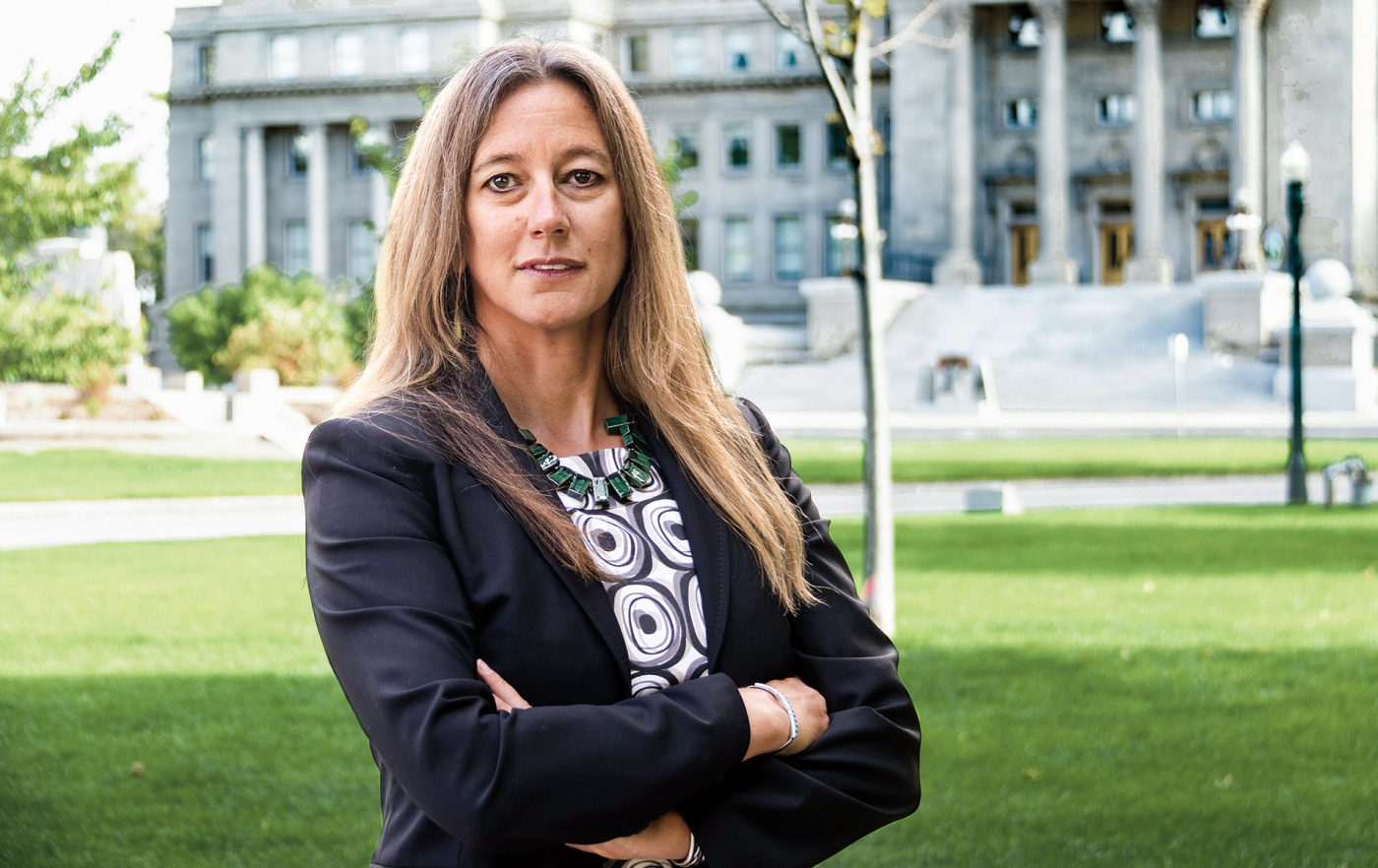The residents of Richmond, Massachusetts, took an old-fashioned view of the surgeon down the street. Farmers in the small Berkshire hamlet would come to the door and Dr. John Lyons would patch their wounds. As his daughter grew, she accompanied him on house calls, casting the arms of friends and neighbors. Soon, she was following her father on hospital rounds, immersed in a tradition already three generations deep.
Decades later and 2,000 miles away, Dr. Julie Lyons ’97 plies the family trade in another small community: Blaine County, Idaho. It’s a rural area—more than double the acreage of Rhode Island but with a population around half of Providence’s East Side. In places like this, family medicine physicians like Lyons take on broad swaths of healthcare by necessity, staying with patients, she says, “from womb to tomb.” Lyons personally has cared for five generations of a single family—all women—delivering the latest member herself.
Last year, her view of patient care, always expansive, took her from the clinic to the courts. In December, she found herself seated in Courtroom 507 of Boise’s Ada County Courthouse as one of two doctors, along with the Idaho Academy of Family Physicians, involved in Adkins v. State of Idaho. The case seeks to clarify medical exemptions to Idaho’s abortion ban, one of the strictest in the nation; the plaintiffs include four women who were driven to extremes to receive abortions. Lyons got involved because the community she cares for includes large immigrant, refugee, and Indigenous populations, which tend to have higher rates of prenatal complications because of difficulty accessing health care.
On paper, slim exceptions remain to the near-total ban. Doctors are allowed to prescribe and perform a medically necessary abortion if, in their “good faith medical judgment,” the woman bearing it will likely die or lose a major bodily function. But those tasked with carrying out the procedure say they don’t know when abortion is the standard course of care and when they’ll face punishment. Penalties are extreme: doctors can permanently lose their medical license and face a minimum of two years in state prison.
When the courts weigh in, Lyons hopes that maternal-fetal medicine doctors will get clarity on their craft—and patients will get access to the care they’re prescribed closer to home. “I always told myself when Roe fell I was going to leave the country, and I haven’t left yet,” Lyons says. “I feel like if I stay here, I have to advocate. I have to amplify the voices of women, otherwise I can’t live with myself. That was a promise I made to myself for too many years. We can’t all run away.”






